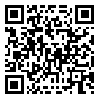Volume 13, Issue 47 (2-2024)
erj 2024, __(47): 128-153 |
Back to browse issues page
Download citation:
BibTeX | RIS | EndNote | Medlars | ProCite | Reference Manager | RefWorks
Send citation to:



BibTeX | RIS | EndNote | Medlars | ProCite | Reference Manager | RefWorks
Send citation to:
Haghayeghi M, Moghadamzadeh A, Ravand H, Javadipour M, Kareshki H. Systematic Review of the Tools Used to Measure Students' Mathematical Creative Thinking Skills. erj 2024; 13 (47) :128-153
URL: http://erj.khu.ac.ir/article-1-1421-en.html
URL: http://erj.khu.ac.ir/article-1-1421-en.html
Marzieh Haghayeghi1 

 , Ali Moghadamzadeh *2
, Ali Moghadamzadeh *2 

 , Hamdollah Ravand3
, Hamdollah Ravand3 
 , Mohamad Javadipour1
, Mohamad Javadipour1 
 , Hossein Kareshki4
, Hossein Kareshki4 



 , Ali Moghadamzadeh *2
, Ali Moghadamzadeh *2 

 , Hamdollah Ravand3
, Hamdollah Ravand3 
 , Mohamad Javadipour1
, Mohamad Javadipour1 
 , Hossein Kareshki4
, Hossein Kareshki4 

1- University of Tehran
2- University of Tehran ,amoghadamzadeh@ut.ac.ir
3- Vali-e-Asr University of Rafsanjan
4- Tehran University
2- University of Tehran ,
3- Vali-e-Asr University of Rafsanjan
4- Tehran University
Abstract: (5260 Views)
As the focus on fostering creative thinking in math education grows, there is a growing interest in understanding how to evaluate these skills. This study used a systematic review following PRISMA guidelines to explore how creative mathematical thinking is assessed in academic literature. After carefully analyzing 55 studies, we looked at different aspects like educational levels, math concepts, assessment methods, and the reliability and validity of these assessments. Our findings revealed that most studies focused on assessing creative thinking in junior secondary education, with limited attention given to primary education. Geometry and measurement were the most commonly assessed subjects, likely due to their visual nature, which lends itself well to assessing creativity. Many assessment tools used open-ended questions, while some incorporated ethnomathematics-based questions. However, less than half of the studies provided evidence of reliability, and only about half reported validity evidence, mostly related to content validity. This review highlights a gap in research concerning the measurement and assessment of creative mathematical thinking.
Keywords: Mathematical Creative Thinking, Mathematics, Assessment, Measurement Tools, Ethnomathematics
Type of Study: Research Paper |
Subject:
Educational Assessment & Measurements
Received: 2024/04/10 | Revised: 2025/03/3 | Accepted: 2024/07/31 | ePublished: 2024/09/7
Received: 2024/04/10 | Revised: 2025/03/3 | Accepted: 2024/07/31 | ePublished: 2024/09/7
Send email to the article author
| Rights and permissions | |
 |
This work is licensed under a Creative Commons Attribution-NonCommercial 4.0 International License. |



